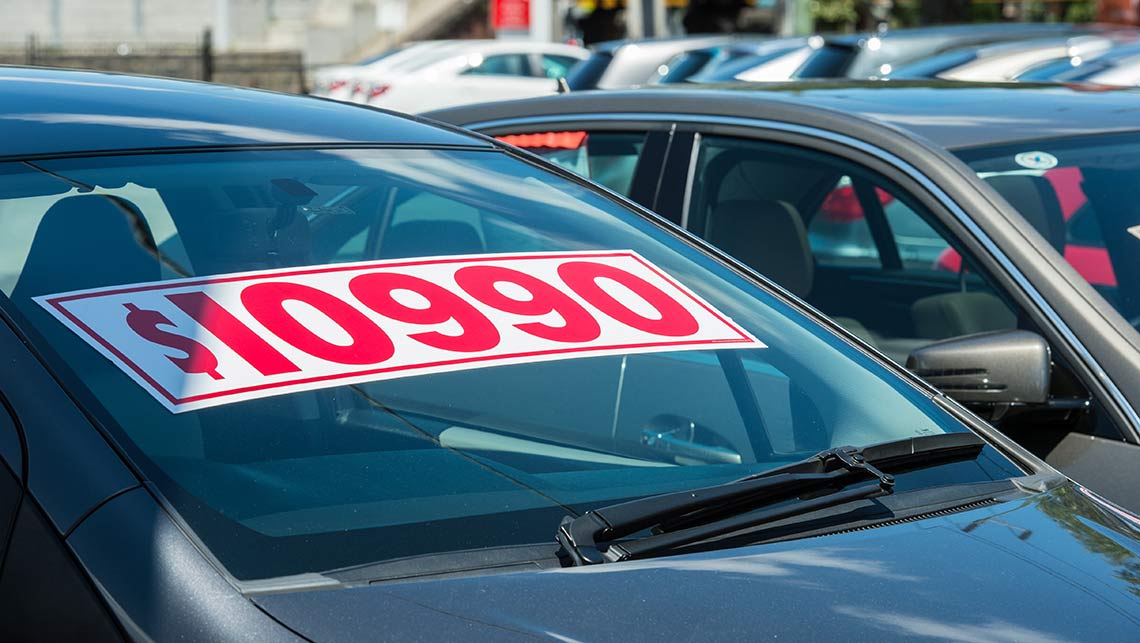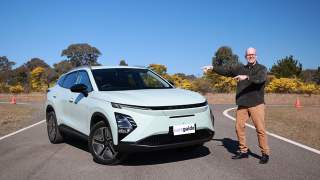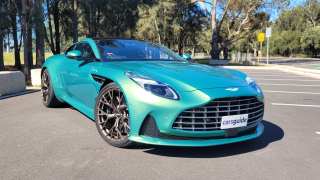
Buying and selling an unregistered car: Everything you need to know

Unfortunately, the easiest way to do things is often the most expensive, and that's certainly the case when it comes to buying a car. Slapping down your heard earned for a brand-new vehicle from a dealer is certainly the most hassle-free way to go about things, but it's not going to be the cheapest.
At the other end of the scale, you may find yourself buying - or selling - an unregistered motor vehicle and, while it does require a bit more legwork, and keeping your wits about you, but it can be done and, whether you're buying, or selling, it can save you money to do it this way.
Depending on the State you live in, of course, there can be restrictions on how you move your unregistered vehicle from one place to another, and you'll want to think very carefully before you let anyone take your unregistered car for a test drive, and whether you can drive your unregistered car home after buying it.
Let's have a look, first, then, at selling an unregistered vehicle.
How to sell an unregistered car
Obviously, by selling your car unregistered you're effectively making your own life a bit harder, because it means a potential buyer will be suspicious - if there's nothing wrong with your vehicle, why don't you just pay the rego - and unable to legally take it for a test drive.
So, the wisest advice would be to just get the car registered and then sell it, but if you don't want to do that what you're going to have to do is drop your selling price. At the very least, you have to give a discount for the amount the buyer is going to have to spend on paying to register it, but also, to make it an attractive proposition in a marketplace where most cars for sale are registered, it will have to be cheaper.
As far as letting someone test drive your vehicle goes, if it's unregistered this is really a no-go, because it's against the law, and because you're basically sending them out in an uninsured vehicle, and thus if there's an accident it would be a complete and expensive disaster.
There is a way around this seemingly intractable problem of having a car no one can drive, of course, because in some States, like Victoria, you can get an unregistered vehicle permit from VicRoads, which will at least allow the buyer to drive your vehicle home after purchasing it. You'll need to check the regulations in NSW, VIc, Qld, WA, SA, etc.
Most of the responsibility for making sure the paperwork is in order and re-registering the car under a new name is going to be up to the buyer, although you will have to provide proof of ownership, so let's move on to looking at it from that side.
How to buy an unregistered car
First and foremost, the advice here would be to take great care. Buying an unregistered car might be cheaper, but you have to ask - and do, specifically ask the buyer - why it's being sold that way. Is there something mechanical wrong with it? Would it not pass roadworthy tests? Does it need work?
You should also carry out the necessary online checks to make sure that it is owned by the person selling it to you, that it is not encumbered with debts and that there are no outstanding fines attached to it. And that it's not stolen, obviously.
Then there's the paperwork side of things to deal with.
Let's look at how the process works in Queensland, for starters, as an example, before looking at the different rule for different states.
In the Sunshine State, if you're going to buy an unregistered car you'll have to get an unregistered vehicle permit from the Department of Transport and Main Roads. You'll also have to get Compulsory Third Party insurance to cover the journey.
The seller can sell you their vehicle, once you're satisfied that you've inspected it and are happy with the state it's in, without a safety certificate in Queensland.
You will then need to create a paper trail for the sale, which must include a signature from the person selling and the person buying; the vehicle identification number (VIN) or chassis number; and/or the engine number; the make and model of the vehicle and the date of sale.
A simple, written contract, or a transaction receipt with a carbon copy should suffice, and both buyer and seller should keep a copy for their records.
As the new owner, you can then apply for an unregistered vehicle permit online or in person. If the car is clearly not safe to drive, however, you'll need to get a tow truck to move it to where you can work on it. You will also need to get CTP insurance that matches the length of your permit.
If you're moving the vehicle interstate you'll need to specify that in your unregistered vehicle permit and if you are moving the car from another State into Queensland, you'll need to get a relevant permit from the State in which your journey begins.
Your Queensland-issued permit can be used to get you anywhere in Australia, well, almost, because there are some circumstances in which WA won't accept it, and then you'll need a separate permit from that state's authorities to continue your journey once you've cross the state line.
NSW
The RMS in NSW is very keen to point out that driving an unregistered vehicle is a serious offence with potentially catastrophic circumstances, so don't try it. If you are caught you will be fined $607 for being unregistered and $530 for being uninsured and if it goes to court those fines could rise to $2200 for driving unregistered and $5500 for being uninsured.
The police may also remove the vehicle's number plates on the spot, or impound the car. Again, this should discourage you from taking a test drive in an unregistered vehicle, even around the block. And again, if you can't drive it, it points out just how careful you have to be about inspecting it mechanically before agreeing to purchase it.
The only time you can legally drive an unregistered vehicle in NSW is to get it registered, and then you must be using the most direct route to your nearest inspection station.
Otherwise you should renew your rego online or via the Service NSW app, by phone, by mail or in person at a registry or service centre.
Victoria
Once again, you can buy an unregistered vehicle in Victoria, and once again you do not need a Certificate of Roadworthiness to do so.
You are advised to check the vehicle registration to confirm it is unregistered, is listed as stolen, written off or has money owning on it.
Step two is to ask the seller for a receipt and keep this as proof of purchase and ownership. The receipt should be dated and included your name and address and signature, and those of the seller, plus the vehicle's details, including the VIN.
If you need to drive the vehicle while it is unregistered, for example to drive the vehicle home after purchasing it, you must obtain an Unregistered Vehicle Permit.
South Australia
Once you've bought an unregistered vehicle in South Australia you have just 14 days to register it in your name, which you can do with your mySA GOV account.
If the vehicle is unregistered you will need the registration number and engine number of the vehicle. If the seller has agreed to transfer the remaining registration, both the buyer and seller must sign the Application for Transfer of Registration.
The state's registration system does not hold information about legal ownership of a vehicle so it is recommended that you get a receipt as proof of purchase.
Western Australia
Once again, the WA authorities strongly suggest that if you are buying an unregistered vehicle you check the Written Off Vehicle Register, and if you have any enquiries to call the Department of Transport on 13 11 56.
There is no need for a roadworthy certificate, which means the onus is on the buyer to do the due diligence to establish the car they is safe and mechanically sound.
Best of all, the WA Government doesn't even charge a fee for transferring the ownership, although if you don't get it done within 14 days there is a $100 fine.
The transfer can also be done online at DoTDirect. Notice of Change of Ownership forms can be downloaded from there, or you can pick up a copy at a DVS Centre or agent.










Comments